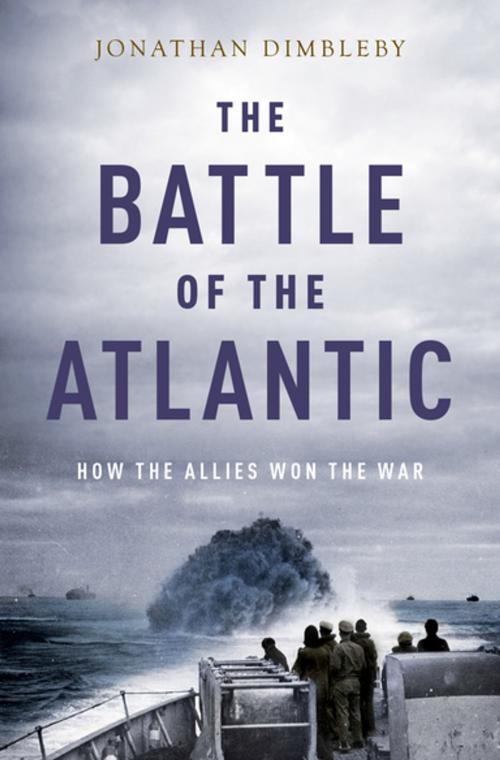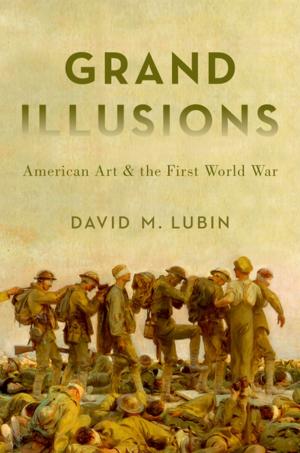The Battle of the Atlantic
How the Allies Won the War
Nonfiction, History, Modern, 20th Century, Americas, United States, Military, World War II| Author: | Jonathan Dimbleby | ISBN: | 9780190495879 |
| Publisher: | Oxford University Press | Publication: | February 1, 2016 |
| Imprint: | Oxford University Press | Language: | English |
| Author: | Jonathan Dimbleby |
| ISBN: | 9780190495879 |
| Publisher: | Oxford University Press |
| Publication: | February 1, 2016 |
| Imprint: | Oxford University Press |
| Language: | English |
"The only thing that ever really frightened me during the war was the U-boat peril," wrote Winston Churchill in his monumental history of World War Two. Churchill's fears were well-placed-the casualty rate in the Atlantic was higher than in any other theater of the entire war. The enemy was always and constantly there and waiting, lying just over the horizon or lurking beneath the waves. In many ways, the Atlantic shipping lanes, where U-boats preyed on American ships, were the true front of the war. England's very survival depended on assistance from the United States, much of which was transported across the ocean by boat. The shipping lanes thus became the main target of German naval operations between 1940 and 1945. The Battle of the Atlantic and the men who fought it were therefore crucial to both sides. Had Germany succeeded in cutting off the supply of American ships, England might not have held out. Yet had Churchill siphoned reinforcements to the naval effort earlier, thousands of lives might have been preserved. The battle consisted of not one but hundreds of battles, ranging from hours to days in duration, and forcing both sides into constant innovation and nightmarish second-guessing, trying desperately to gain the advantage of every encounter. Any changes to the events of this series of battles, and the outcome of the war-as well as the future of Europe and the world-would have been dramatically different. Jonathan Dimbleby's The Battle of the Atlantic offers a detailed and immersive account of this campaign, placing it within the context of the war as a whole. Dimbleby delves into the politics on both sides of the Atlantic, revealing the role of Bletchley Park and the complex and dynamic relationship between America and England. He uses contemporary diaries and letters from leaders and sailors to chilling effect, evoking the lives and experiences of those who fought the longest battle of World War Two. This is the definitive account of the Battle of the Atlantic.
"The only thing that ever really frightened me during the war was the U-boat peril," wrote Winston Churchill in his monumental history of World War Two. Churchill's fears were well-placed-the casualty rate in the Atlantic was higher than in any other theater of the entire war. The enemy was always and constantly there and waiting, lying just over the horizon or lurking beneath the waves. In many ways, the Atlantic shipping lanes, where U-boats preyed on American ships, were the true front of the war. England's very survival depended on assistance from the United States, much of which was transported across the ocean by boat. The shipping lanes thus became the main target of German naval operations between 1940 and 1945. The Battle of the Atlantic and the men who fought it were therefore crucial to both sides. Had Germany succeeded in cutting off the supply of American ships, England might not have held out. Yet had Churchill siphoned reinforcements to the naval effort earlier, thousands of lives might have been preserved. The battle consisted of not one but hundreds of battles, ranging from hours to days in duration, and forcing both sides into constant innovation and nightmarish second-guessing, trying desperately to gain the advantage of every encounter. Any changes to the events of this series of battles, and the outcome of the war-as well as the future of Europe and the world-would have been dramatically different. Jonathan Dimbleby's The Battle of the Atlantic offers a detailed and immersive account of this campaign, placing it within the context of the war as a whole. Dimbleby delves into the politics on both sides of the Atlantic, revealing the role of Bletchley Park and the complex and dynamic relationship between America and England. He uses contemporary diaries and letters from leaders and sailors to chilling effect, evoking the lives and experiences of those who fought the longest battle of World War Two. This is the definitive account of the Battle of the Atlantic.















